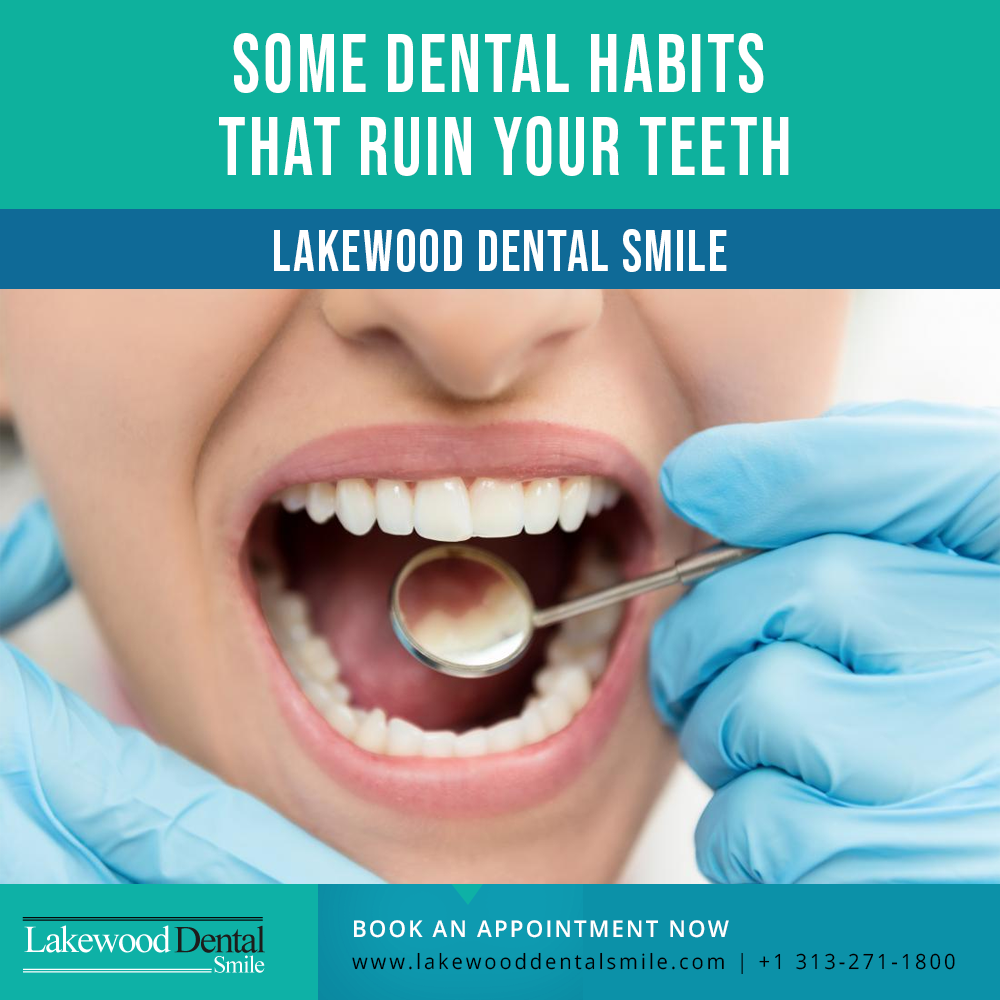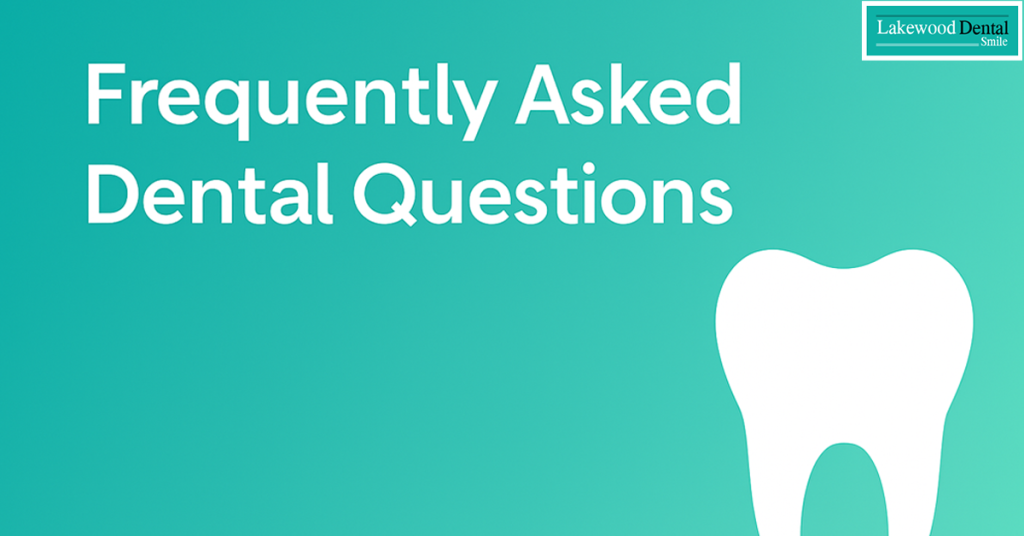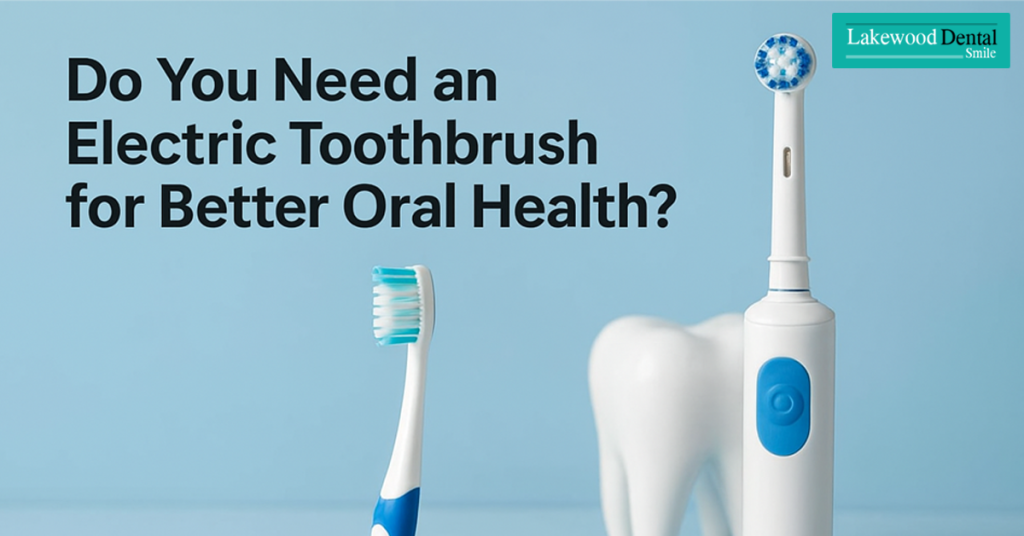Bad dental habits can silently damage your teeth and gums, even when you think you’re following a good oral hygiene routine. Many people brush twice daily but unknowingly make mistakes that weaken enamel, irritate gums, or create cavities. Ignoring these habits may not cause immediate pain, but the long-term effects can lead to costly treatments.
Understanding what these habits are — and how to correct them — can help you maintain a strong, bright smile. Let’s look at the most common habits that can ruin your teeth and learn practical ways to overcome them.

🦷 1. Forgetting to Floss Every Day
Brushing alone doesn’t clean the tight spaces between your teeth. Skipping flossing allows plaque to build up and bacteria to thrive, leading to gum inflammation and cavities. Over time, this can cause bad breath and even tooth loss.
Tip: Keep your floss next to your toothbrush or in your work bag to remind yourself daily. Pairing flossing with brushing turns it into an automatic habit that keeps your mouth truly clean.
🪥 2. Brushing Too Soon After Eating Acidic Foods
Brushing right after eating or drinking acidic foods like citrus fruits, sodas, tomatoes, or wine can harm your enamel. The acid temporarily softens enamel, and brushing during that time can wear it away.
What to do: Rinse your mouth with plain water immediately after eating and wait about 20–30 minutes before brushing. This allows saliva to neutralize acids and re-harden your enamel naturally, reducing erosion risk.
🪶 3. Using a Hard-Bristled Toothbrush
Some people believe harder bristles clean better — but that’s a bad dental habit that causes gum recession and enamel wear. Hard brushes can also make teeth sensitive and expose dentin, leading to discomfort when eating or drinking.
Solution: Choose a soft-bristled toothbrush and use gentle, circular motions. Electric brushes with pressure sensors can help you control force and protect your gums. Remember: brushing smarter, not harder, keeps your teeth safe.
🔄 4. Ignoring the Right Brushing Technique
Even if you brush twice a day, poor technique limits your results. Holding your toothbrush incorrectly or moving it too fast can miss key areas, especially near the gum line.
Correct method:
- Hold the brush at a 45-degree angle toward your gums.
- Use short back-and-forth strokes on each tooth.
- Follow with gentle vertical motions to sweep plaque away.
Consistency with proper technique ensures that brushing is effective and gentle every time.
5. Grinding or Clenching Teeth at Night
Teeth grinding (bruxism) is one of the most damaging bad dental habits because it often happens during sleep. Continuous grinding can chip enamel, cause jaw pain, and even fracture teeth.
Fix it: Ask your dentist about a custom night guard to cushion your teeth while you sleep. Reducing caffeine and stress before bedtime can also ease nighttime clenching.
6. Using Teeth as Tools
Biting open bottles, tearing packets, or holding pins with your teeth might feel convenient — but these actions can chip or crack your teeth instantly. They also strain your jaw and cause uneven wear.
Smart alternative: Always use the proper tool. Keep scissors, bottle openers, or clips handy. It’s a simple change that saves you from costly dental emergencies.
7. Skipping Regular Dental Checkups
Even if you brush and floss perfectly, dental plaque can harden into tartar — something you can’t remove at home. Avoiding regular checkups lets minor issues grow into major problems.
Recommendation: Schedule professional cleanings every six months. Regular visits allow your dentist to spot issues early and maintain your oral health for years to come.
Key Benefits of Fixing Bad Dental Habits
- Long-Term Tooth Protection — Prevent enamel loss, gum damage, and decay by stopping harmful habits early.
- Brighter Smile & Fresher Breath — Regular flossing and correct brushing keep your mouth cleaner and more confident.
- Fewer Dental Expenses — Preventive care costs far less than major treatments like root canals or crowns.
When you replace harmful patterns with proper habits, your oral health — and your smile — can thrive naturally.
Patient Scenario
A patient from Dearborn, Michigan, visited Lakewood Dental Smile complaining of sensitive teeth and bleeding gums. After evaluation, our dentists found that she brushed too hard, skipped flossing, and used a hard-bristled brush — classic bad dental habits.
We advised her to switch to a soft brush, learn gentle techniques, and floss daily. Within three weeks, her gums healed, and sensitivity reduced drastically. She now maintains a confident, pain-free smile with consistent care.
Aftercare and Maintenance Tips
To prevent relapse into bad dental habits, maintain a routine:
- Replace your toothbrush every 3–4 months.
- Drink plenty of water and limit acidic snacks.
- Keep regular appointments at Lakewood Dental Smile for checkups and professional cleaning.
These small steps ensure your oral care routine remains effective and protective.
Conclusion
Breaking bad dental habits is one of the best investments you can make for lifelong oral health. By understanding what harms your teeth and making simple changes, you can keep your smile strong and healthy. Visit Lakewood Dental Smile in Dearborn for expert advice, gentle care, and complete dental solutions. Your healthy smile starts with better daily choices.




